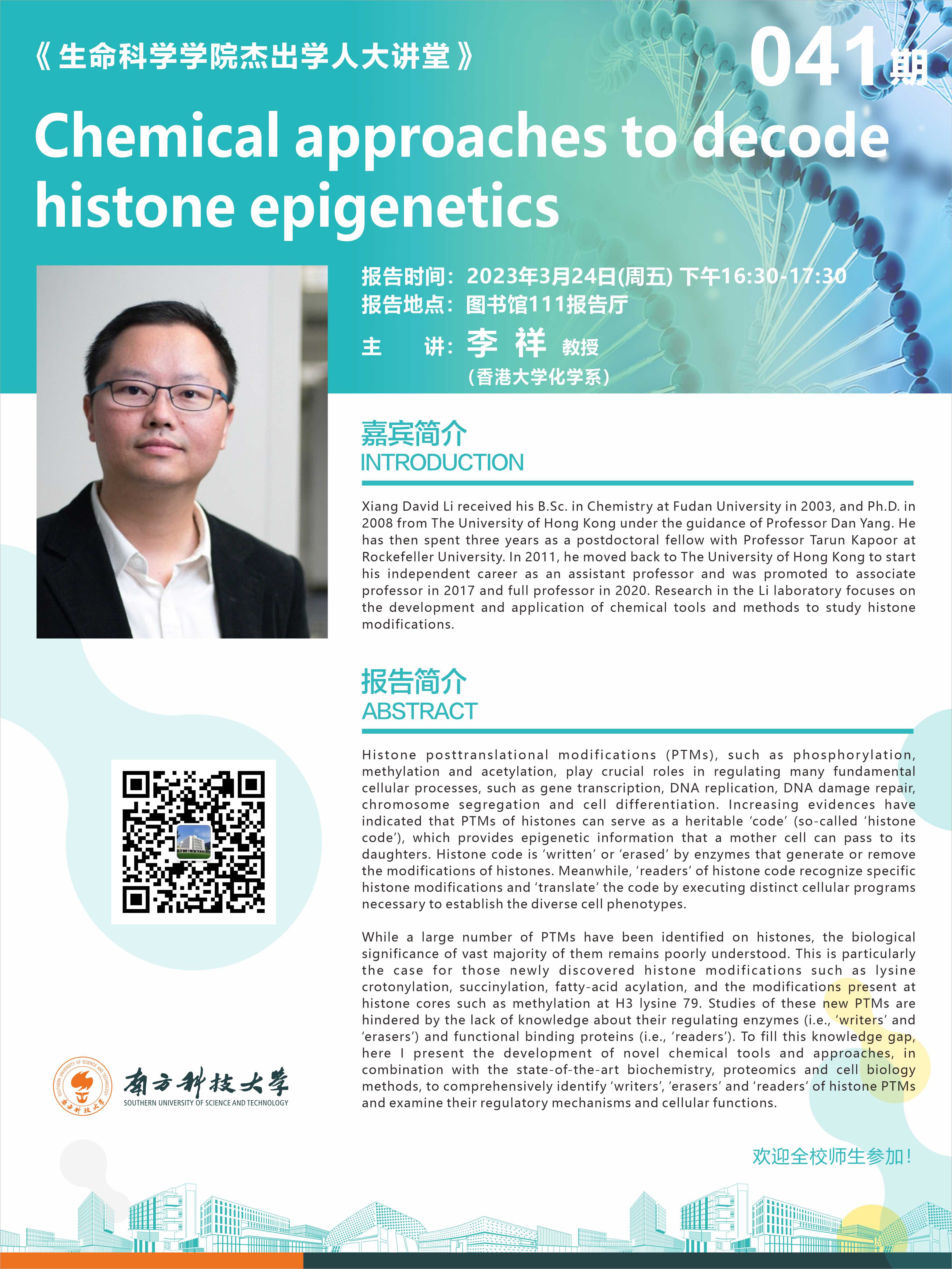
主讲人: 李祥 教授
时间: 2023年3月24日(周五)下午16:30-17:30
地点: 琳恩图书馆111报告厅
题 目:Chemical approaches to decode histone epigenetics
主 讲:李祥 教授
时 间:2023年3月24日(周五)下午16:30-17:30
地 点:琳恩图书馆111报告厅
报告摘要:
Histone posttranslational modifications (PTMs), such as phosphorylation, methylation and acetylation, play crucial roles in regulating many fundamental cellular processes, such as gene transcription, DNA replication, DNA damage repair, chromosome segregation and cell differentiation. Increasing evidences have indicated that PTMs of histones can serve as a heritable ‘code’ (so-called ‘histone code’), which provides epigenetic information that a mother cell can pass to its daughters. Histone code is ‘written’ or ‘erased’ by enzymes that generate or remove the modifications of histones. Meanwhile, ‘readers’ of histone code recognize specific histone modifications and ‘translate’ the code by executing distinct cellular programs necessary to establish the diverse cell phenotypes.
While a large number of PTMs have been identified on histones, the biological significance of vast majority of them remains poorly understood. This is particularly the case for those newly discovered histone modifications such as lysine crotonylation, succinylation, fatty-acid acylation, and the modifications present at histone cores such as methylation at H3 lysine 79. Studies of these new PTMs are hindered by the lack of knowledge about their regulating enzymes (i.e., ‘writers’ and ‘erasers’) and functional binding proteins (i.e., ‘readers’). To fill this knowledge gap, here I present the development of novel chemical tools and approaches, in combination with the state-of-the-art biochemistry, proteomics and cell biology methods, to comprehensively identify ‘writers’, ‘erasers’ and ‘readers’ of histone PTMs and examine their regulatory mechanisms and cellular functions.
嘉宾简介:
Xiang David Li received his B.Sc. in Chemistry at Fudan University in 2003, and Ph.D. in 2008 from The University of Hong Kong under the guidance of Professor Dan Yang. He has then spent three years as a postdoctoral fellow with Professor Tarun Kapoor at Rockefeller University. In 2011, he moved back to The University of Hong Kong to start his independent career as an assistant professor and was promoted to associate professor in 2017 and full professor in 2020. Research in the Li laboratory focuses on the development and application of chemical tools and methods to study histone modifications.